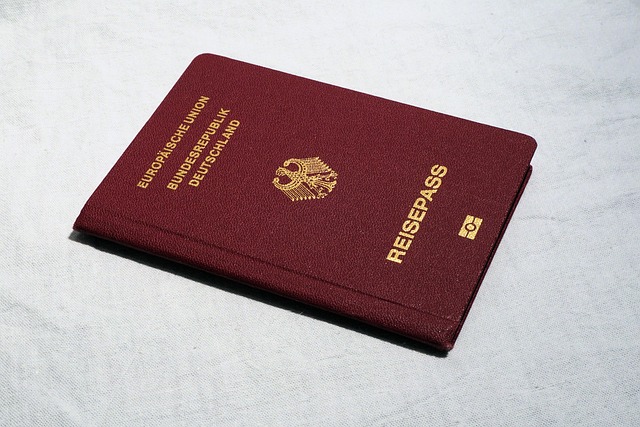Thinking About Working Abroad? Here’s What You Should Know First
Working in another country can offer valuable experience and a new perspective — but it also comes with important decisions. This article provides a clear overview of what to expect, how to prepare, and what factors to consider before taking the next step.

What types of jobs are typically available for expatriates?
The global job market offers a diverse range of opportunities for those looking to work abroad. Some of the most common types of jobs available to expatriates include:
-
English language teaching
-
Information technology and software development
-
Finance and accounting
-
Healthcare and medical professions
-
Hospitality and tourism
-
International business and management
-
Engineering and construction
-
Non-profit and NGO work
The availability of these jobs can vary depending on the country and its economic needs. It’s essential to research the job market in your desired destination to understand which industries are in demand and align with your skills and experience.
How can I research legal and visa considerations for working abroad?
Understanding the legal requirements and visa processes for working in another country is crucial. Here are some steps to help you research these considerations:
-
Visit the official government websites of your target country for accurate visa information.
-
Consult with the embassy or consulate of the country where you wish to work.
-
Research work permit requirements and eligibility criteria.
-
Understand the different types of visas available (e.g., working holiday visas, skilled worker visas, or employer-sponsored visas).
-
Check if there are any bilateral agreements between your home country and the destination country that may facilitate the work permit process.
-
Consider seeking advice from an immigration lawyer or a reputable international relocation service.
Remember that visa requirements can be complex and subject to change, so it’s essential to obtain the most up-to-date information from official sources.
What steps should I take to prepare for working in another country?
Preparing for an international work experience involves several key steps:
-
Research the job market and identify potential opportunities in your field.
-
Update your resume and cover letter to align with the expectations of employers in your target country.
-
Network with professionals who have experience working in your desired location.
-
Improve your language skills if necessary for the country you’re targeting.
-
Familiarize yourself with the local business culture and etiquette.
-
Arrange for housing and understand the cost of living in your new location.
-
Research healthcare options and obtain necessary insurance coverage.
-
Organize your finances, including setting up an international bank account if needed.
-
Prepare all necessary documents, including passport, visas, and professional certifications.
-
Plan for logistics such as transportation and communication in your new country.
How can I find job opportunities abroad?
Finding job opportunities in another country requires a strategic approach:
-
Use international job boards and websites specializing in expatriate employment.
-
Leverage professional networking platforms like LinkedIn to connect with recruiters and companies in your target country.
-
Attend international job fairs and industry conferences.
-
Consider working with a recruitment agency that specializes in international placements.
-
Explore opportunities within multinational companies that may offer international transfers.
-
Check if your current employer has offices or partners abroad that may offer relocation opportunities.
-
Utilize alumni networks if you’ve studied abroad or have connections through your university.
-
Research companies in your industry that have a presence in your desired location and reach out directly.
What unique challenges might I face when working in the Netherlands?
For those considering working in the Netherlands, there are some specific factors to keep in mind:
-
Language: While many Dutch people speak English, learning Dutch can be beneficial for integration and some job opportunities.
-
Housing: The housing market in major cities like Amsterdam and Rotterdam can be competitive and expensive.
-
Tax system: The Netherlands has a complex tax system, including the 30% ruling for some expatriates, which requires careful navigation.
-
Work culture: Dutch work culture values directness, punctuality, and a good work-life balance.
-
Weather: The Netherlands is known for its rainy climate, which can be an adjustment for those from sunnier regions.
What are the potential financial implications of working abroad?
Working abroad can have significant financial implications that require careful consideration:
-
Salary expectations may differ from your home country.
-
Cost of living can vary greatly between countries and cities.
-
Tax obligations may be complex, potentially involving dual taxation agreements.
-
Currency exchange rates can affect your earnings and savings.
-
Relocation costs, including flights, temporary housing, and shipping belongings.
-
Potential changes in pension and retirement savings plans.
| Expense Category | Estimated Monthly Cost (in Euros) | Notes |
|---|---|---|
| Housing (Rent) | 800 - 1,500 | Varies by city and accommodation type |
| Utilities | 150 - 250 | Including electricity, water, internet |
| Food | 250 - 400 | Groceries and occasional dining out |
| Transportation | 50 - 100 | Public transport or bicycle costs |
| Health Insurance | 100 - 200 | Mandatory in the Netherlands |
| Entertainment | 100 - 300 | Personal preference dependent |
Prices, rates, or cost estimates mentioned in this article are based on the latest available information but may change over time. Independent research is advised before making financial decisions.
Working abroad can be a rewarding experience that enhances both your personal and professional life. By thoroughly researching your options, understanding the legal requirements, and preparing adequately, you can set yourself up for a successful international career move. Remember that flexibility, cultural sensitivity, and a positive attitude are key to thriving in a new work environment abroad.






